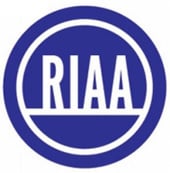TorrentFreak Email Update |
- Megaupload Cases Put on Hold, But Asset Freezing Still an Option
- RIAA Revenue Drops to Record Low
- Movie Chain Bans Google Glass Over Piracy Fears
| Megaupload Cases Put on Hold, But Asset Freezing Still an Option Posted: 11 Jun 2014 12:49 AM PDT
Targeting Kim Dotcom and his associates Mathias Ortmann and Bram Van Der Kolk, the civil case aimed to recover millions in damages said to have been caused by the now-defunct Megaupload file-storage site. The case filed by the MPAA was quickly followed by another initiated by the RIAA, with both following the pattern set by a U.S. Government criminal case already underway against Dotcom and colleagues in the United States. To avoid their clients incriminating themselves ahead of the criminal case, Megaupload’s legal team later asked a U.S. court to freeze the civil cases filed by the MPAA and RIAA. Yesterday, United States District Judge Liam O’Grady granted that Motion to Stay.  However, the plaintiffs were successful in their request to have a number of conditions attached to the decision, each designed to give them freedom to embark on further legal action should they feel that’s appropriate. Firstly, Judge O’Grady’s order does not disallow the plaintiffs from effecting service on any other defendant who has not already been served. They are also free to amend their complaint as they see fit. Unsurprisingly, the thorny issue of Kim Dotcom’s assets, currently frozen by the New Zealand government pending an appeal, was also addressed. "If the New Zealand Government loses the appeal, the assets will be unfrozen, and there is a significant risk that they will then be immediately dissipated," the studios explained in a filing last month. That concern was dealt with by Judge O’Grady in yesterday’s order by granting the studios freedom to go after Dotcom’s assets wherever they see fit. “Plaintiffs may institute and pursue any action in the United States or a foreign jurisdiction to preserve Defendants’ assets in the event that such action becomes necessary,” the Judge wrote. “The Court finds that each of Plaintiffs’ proposed conditions are reasonable under the circumstances of this case because of the possibility that Defendants’ assets abroad may become unfrozen.” As a result the case is now frozen until August 1, 2014, seven weeks from today. The same decision was made in respect of the civil case filed against Megaupload by the RIAA. Source: TorrentFreak, for the latest info on copyright, file-sharing and anonymous VPN services. |
| RIAA Revenue Drops to Record Low Posted: 10 Jun 2014 11:15 AM PDT
Continuing the trend from recent years the total revenue of the anti-piracy group dropped once again, to $24.2 million. This is a record low in recent history, and down more than 50% compared to four years ago. The drop is a direct result of the decrease in membership dues the RIAA receives from the record labels, which makes up almost its entire budget. Apparently the labels have decided to put less money into anti-piracy efforts, or stop the payments altogether. On the plus side there is a small amount of income from anti-piracy settlements, including that obtained through the Limewire lawsuit. In 2012/2013 the “anti-piracy restitution” proceeds were $170,880, which is relatively low considering that the Limewire case alone was settled for $105 million. Thanks to continuing employee cutbacks and lower legal fees the RIAA is still financially healthy. The reported loss over the reported year was $170,000, but this is easily covered by the $14 million in total assets. The organization employed 58 people in 2012 and the total salary costs amounted to $11.6 million. Previously, the music industry group had well over 100 employees.  The RIAA’s chief executive Cary Sherman is the highest paid employee with a salary of just over a million dollars. In addition, the RIAA boss received several bonuses which totaled $498,000. Also high up the payment roster are Senior Executive Vice President Mitch Glazier, General Counsel Steve Marks and Executive Vice President International Neil Turkewitz, making over half a million dollars each. Looking at other costs we see that the money spent on lobbying efforts remains static at roughly $2 million. Legal fees are just under $1 million, which is about the same as last year. However, four years ago legal fees were a massive $16 million, making the cutback in legal efforts one of the main cost savers. While the RIAA’s revenue continues to drop, the overall decline is relatively modest when compared to last year. This suggests that the group has more or less finished its financial reorganization, and that the RIAA will now go forward with fewer lawsuits and employees. The anti-piracy group may have halved in size over the last four years, which is significant, but there are no signs that it will disband entirely. The full 2012/2013 filing, obtained by TorrentFreak, is available here. Source: TorrentFreak, for the latest info on copyright, file-sharing and anonymous VPN services. |
| Movie Chain Bans Google Glass Over Piracy Fears Posted: 10 Jun 2014 05:59 AM PDT
Just this January the FBI dragged a man from a movie theater in Columbus, Ohio, after theater staff presumed his wearing of Google Glass was a sign that he was engaged in camcorder piracy. While it’s possible the device could be put to that use, it’s now less likely that patrons of the Alamo Drafthouse movie theater chain will be able to do so without being noticed. Speaking with Deadline, company CEO and founder Tim League says the time is now right to exclude the active use of Glass completely. "We've been talking about this potential ban for over a year," League said. "Google Glass did some early demos here in Austin and I tried them out personally. At that time, I recognized the potential piracy problem that they present for cinemas. I decided to put off a decision until we started seeing them in the theater, and that started happening this month." According to League, people won’t be forbidden from bringing Google Glass onto the company’s premises, nor will they be banned from wearing the devices. Only when the devices are switched on will there be a problem. “Google Glass is officially banned from drafthouse auditoriums once lights dim for trailers,” League explained yesterday. Asked whether people could use them with corrective lenses, League said that discretion would be used. “It will be case by case, but if it is clear when they are on, clear when they are off, will likely be OK,” he said. But despite the theater chain’s apparent flexibility towards the non-active use of the device, the ban does seem to go further than the official stance taken by the MPAA following the earlier Ohio incident. "Google Glass is an incredible innovation in the mobile sphere, and we have seen no proof that it is currently a significant threat that could result in content theft," the MPAA said in a statement. However, recording a movie in a theater remains a criminal offense in the United States, so the decision as to whether a crime has been committed will be the decision of law enforcement officers called to any ‘camming’ incident. Given then the MPAA’s statement, it will be interesting to see if the studios will encourage the police to pursue cases against future Google Glass users. Source: TorrentFreak, for the latest info on copyright, file-sharing and anonymous VPN services. |
| You are subscribed to email updates from TorrentFreak To stop receiving these emails, you may unsubscribe now. | Email delivery powered by Google |
| Google Inc., 20 West Kinzie, Chicago IL USA 60610 | |


 Ever since the concept became public there have been fears over potential misuse of Google Glass. The advent of the wearable computer has sparked privacy fears and perhaps unsurprisingly, concerns that it could be used for piracy.
Ever since the concept became public there have been fears over potential misuse of Google Glass. The advent of the wearable computer has sparked privacy fears and perhaps unsurprisingly, concerns that it could be used for piracy.